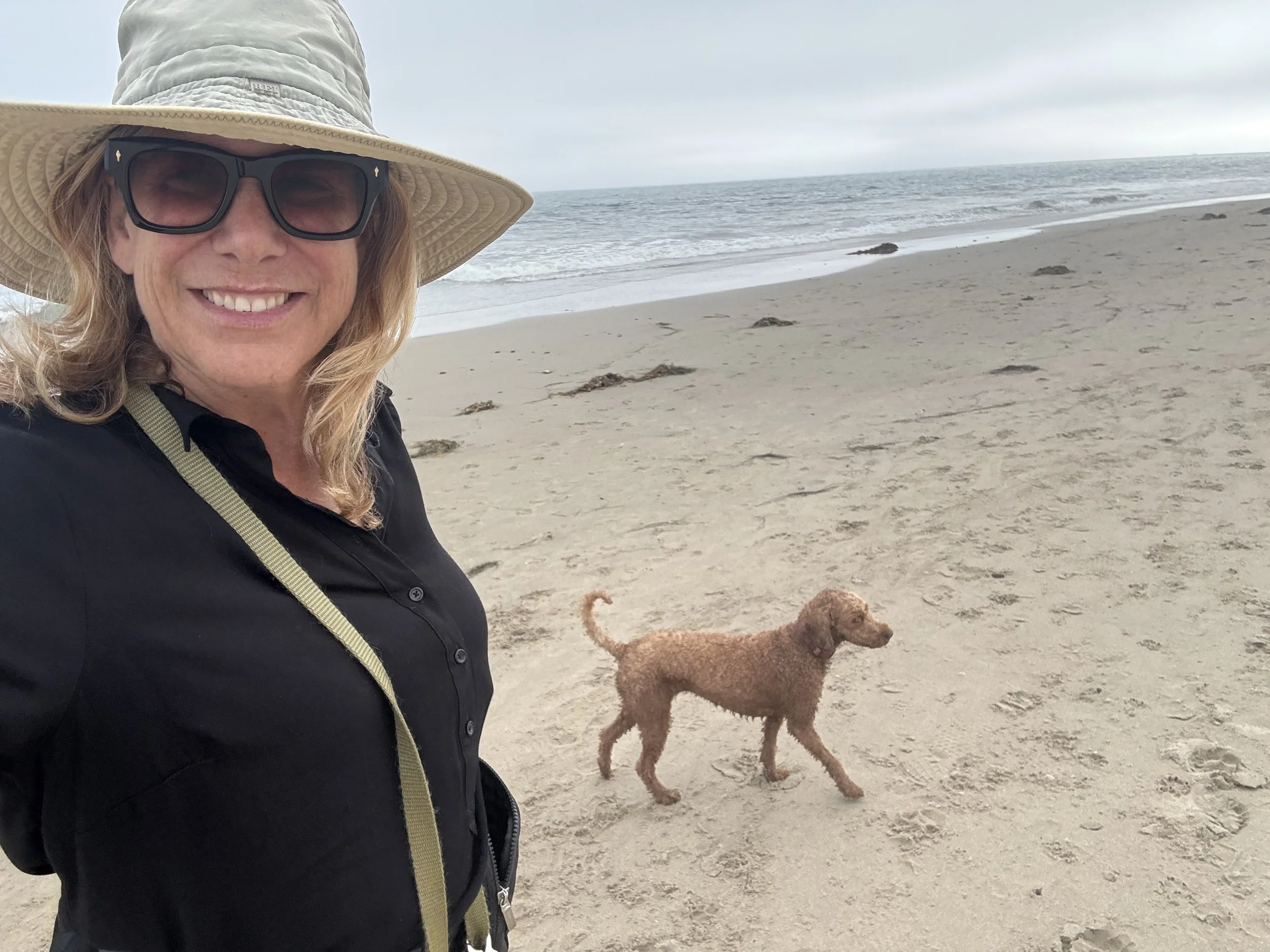I Go First
I bumped into a dad friend while beach walking yesterday. He confessed that his thirteen year-old daughter seemed to be struggling with some big emotions and maybe even some social anxiety. I said, perhaps too flippantly, “Aww, that’s hard. Diagnosis teenage girl.”
He seemed confused that I was not more disturbed, or at all surprised, that his ebullient, brilliant, sunny, self-confident daughter seemed to have become a different person overnight. Where once there was self-assurance, bravado, and the assumption of social belonging, now there was creeping insecurity, second-guessing, and a roller-coaster of fear, anger, sadness, self-doubt. Plus, sometimes she was wildly loud, explosive, expressive, sometimes terrifyingly checked out behind closed doors.
“Yup,” I said, “sounds pretty normal to me.”
Maybe because I’ve been so “out” about my own challenges, parents come to me with confessions, like, “I don’t know what to do with my daughter who is … “starving herself, cutting herself, holing up with her phone late at night, not sleeping, sleeping too much, obsessing over which outfit to wear then bursting into tears, doing drugs.”
So my friend telling me that sometimes his teenage daughter gets upset, really upset, was not moving my crisis-ometer needle. He continued, “I just wish there was something I could do to help her feel better.”
And that rung my bell. Feeling better more of the time — now we were in my scope of practice. “There is something you can do,” I said. “You can stop wishing for her to be different or better than she is. You can allow yourself to feel better even though she is in a developmental transition that includes big feelings. You can look at her through love eyes not fear eyes and see her as your beloved daughter who is strong and smart and capable of getting through this stage of life. You can look for what’s right with her and feed that, support that. Show her that she doesn’t scare you and you’re there for her even when she’s melting or on fire.”
And then he said, “Maybe we should get her a therapist …”
“You could do that,” I said, “It’s definitely good for teens to have non-parent adults they can trust and talk to. Could be a therapist. Or her volleyball coach or a cool aunt.”
Then I saw him thinking, his big brain working to find a fix for his kid who was not broken. I felt a wave of compassion for him, for myself, and for all the parents who love their kids and want them to feel better more of the time and for all people everywhere who want to feel better more of the time. And then something seemed to shift in him and his breathing got easier.
“I can do this,” he said.
“Yes you can,” I said. And I felt good about passing on what I had learned about the fact that in parenting, it’s my job to lead. I go first. I need to be okay, I need to reach out and connect if I want my kid to be okay and connected.
That might not be the whole recipe, but it’s a key ingredient. Looking at my kid while focusing on his flaws and problems rather than his strengths and talents is a great way for both of us to feel worse more of the time. When I get scared for him I get to pause and remember: I believe in him. And I believe in myself.
I am the only mother he has and the best one he’s gonna get. I can do this teen parenting thing. I can show up and look at him with love and faith and awe eyes. I can support who he is and what he’s into without it needing to be my idea of how he should be.
I talked to my shrink, Trish, about it. “Trish, what do you see in happy, healthy teens?”
And she hemmed and hawed for a bit and then she said, “They have something they care about, that they are passionate about, whatever it is, and they expend energy in that direction. They talk to other kids, and they can talk about their feelings.”
“Okay,” I said. I’m gonna keep going.
